Posts Tagged ‘U.S. Programs’
Welcoming Afghans in San Diego
Since August, World Relief has welcomed and resettled over 1,000 Afghans who had been evacuated out of Kabul. Today, over 34,000 Afghans remain on eight U.S. military bases awaiting their chance at a new life in the U.S. World Relief is diligently preparing to resettle up to 7,000 of these brave individuals between now and March 2022.
The need is great, and we couldn’t do this work without the help of partners like Hope for San Diego.Today, Susie Fikse, Executive Director at Hope for San Diego, talks about why partnering with World Relief is critical to Hope for San Diego’s mission. Read more to find out how you and your community can move with us, just like Susie and Hope for San Diego have done. Together, we can create communities of love and welcome that we all feel proud to be a part of.
First, can you tell us a little about Hope for San Diego?
Hope for San Diego is an independent non-profit with a mission to engage our community to care for and invest in our under-served neighbors. Our focus areas include refugees/ immigrants, sex trafficking, foster care and homelessness—all pressing issues in San Diego.
How did you first get connected with World Relief?
Twenty-five years ago, I was living in Atlanta. The church my family attended was involved with World Relief, and I signed up to bring Thanksgiving dinner to a refugee family. I remember standing at the door of this family’s small apartment. There were eight people living there. They had no furniture in the living room, but they welcomed me and my family and offered us drinks and fruit. We couldn’t really communicate because of the language barrier, but it was a really meaningful and eye-opening experience.
How did you help bring World Relief to San Diego?
Shortly after I took the job as Executive Director of Hope for San Diego, we began working with refugees in the area. Soon we realized that there were many organizations doing many different things for refugees — all of them great, but very uncoordinated.
For a long time, I felt the need for some kind of umbrella organization to help bring all our efforts together and to make sure the work we were doing was helping instead of hurting. I knew World Relief would be a great partner to bring us all together and help facilitate healthy ministry.
We connected with the World Relief SoCal office, and they did a few trainings with us and our church partners. But when the border crisis came to a head a couple of years ago, it became clear that we needed the expertise of World Relief in closer proximity to all these needs! It took some time to figure out how to make it work, but in March, we were able to fund the first full-time World Relief staff in San Diego, and a group of churches assembled to collaborate in building a more effective ministry to refugees.
Aside from funding, how else does Hope for San Diego partner with World Relief?
Our partner churches volunteer in different ways through the connections World Relief provides, whether that is building friendships with refugees, providing tangible support like furniture or shoes, or participating in tutoring programs.
We have also hosted World Relief speakers at educational events, which is a powerful way to help our community build a Biblical worldview of immigration. Likewise, we sent a select group of leaders on a Border Vision Trip, which opened eyes to the complexity of immigration issues facing people just 30 minutes from our homes.
How is Hope for San Diego specifically working to welcome and resettle Afghans in your community?
Thanks to the support of people within our eight partner churches and other community members, we were very quickly able to form two Good Neighbor Teams, mobilize volunteers to set up apartments and deliver groceries, secure 40 mattress donations and pre-paid phone cards, among so many other things. The immediate and continued response from the community has been encouraging.
We believe that relationships designed to support self-sufficiency are the key to long term transformation—both of the refugees and the volunteers that engage with them. Our goal is to create a minimum of 10 Good Neighbor Teams (4-5 people each) through our partnership with World Relief that will commit to building genuine, long-term friendships, helping refugee families orient to American life and create a future here.
We also believe another key element of welcoming refugees is educating our community about their plight and celebrating the diversity that they help create so in January, we’re hosting and event called “From Strangers to Neighbors.” Matt Soerens from World Relief will be there to speak and we’re eager for the ways this will engage and equip others in our community to respond.
Why is partnering with World Relief one of the things you’ve continued to hold onto?
The work of World Relief is more essential than ever before. The gaps between the affluent and the poor continue to widen and World Relief is helping to bridge those gaps. When I see a refugee family of nine living in a two-bedroom apartment and six kids trying to do online school while their parents are working two jobs, I know that we need to come alongside these families to provide support. Without organizations like World Relief, these kids are going to fall further behind, which has long-term consequences for all of us.
What is your vision for the Church in San Diego, and how do you see World Relief playing a role in that vision?
Our vision is to see God renew San Diego so that even people in the most vulnerable situations can thrive. Our city is not experiencing shalom in the way God intended unless all people are thriving, not just those within our churches. The Church is the vehicle God wants to use to bring renewal and hope to our city. But that means we have to step outside the church and outside our comfort zone to build relationships. In order to do that, we need the right opportunities and the right training. World Relief provides that for us.
We are so grateful for partners like Susie and Hope for San Diego who remind us that when we move together, we can be an irresistible force for good and an agent of lasting change. Help create communities of love and welcome this season by moving with us and giving today.

Rachel Clair serves as a Content Writer at World Relief. With a background in creative writing and children’s ministry, she is passionate about helping people of all ages think creatively and love God with their hearts, souls and minds.
Abe Ibrahim Helps Refugees Feel More at Home
Mbanzamihigo “Abe” Ibrahim is helping people feel at home. Born in a Tanzanian refugee camp and resettled in the U.S. at the age of 10, Abe is no stranger to feeling out of place.
A Burundian, Abe remembers his first days in the U.S. when, suddenly, everything from music to food to language was different. But after being welcomed and encouraged by World Relief Quad Cities in Illinois, Abe adapted to his new home while holding onto and celebrating his Burundian heritage. Today, Abe works as a caseworker at WR Quad Cities, helping others feel welcomed and embraced in their new community. Abe is passionate about inclusion, representation and walking alongside people as they rebuild their lives.
Abe shares how his role at WR Quad Cities helps him give back to his community in the video below.
*Update: Since this article was first published in 2021, Abe has moved on from his full-time position at World Relief.
Working for World Relief Quad Cities helped Abe achieve his dream of going to college and pursuing a career as a public speaker. In 2021, Abe was crowned Mr. Burundi America through the Mr. and Miss Burundi America pageant in Quad Cities. He took a year off from school and traveled back to Burundi to visit family, and he also got the chance to speak to local schools, where he distributed school supplies and encouraged kids to keep pursuing their dreams.
“They saw me, face to face, and saw how much is possible,” Abe said.
Today, Abe is back in the Quad Cities working and plans to go back to school and complete his Bachelor’s degree. He remains committed to helping refugees in Quad Cities and stays connected to World Relief, contracting part-time as an interpreter. Abe is grateful for his time as a caseworker, and we’re grateful for him too!
“If I never worked with the World Relief family,” Abe said, “I wouldn’t have developed that mindset to make an impact. It became more influential, see, like ‘hey, I can make a difference.’ …Now, there are certain things I can recognize and communicate, and I only have that knowledge because I was a caseworker. It helped me with my community, and it helped me think bigger.”
People like Abe are changing the world, and you can join them when you apply to work at World Relief! World Relief is growing our team to meet the increased needs of our world, and we’re looking for people like you to join us.

Kelly Hill serves as a Content Writer at World Relief. She previously served as Volunteer Services Manager at World Relief Triad in North Carolina before moving to Salt Lake City. With a background in International and Intercultural Communication, she is passionate about the power of story to connect people of diverse experiences.
Your Rebuilding Questions Answered
A Conversation with Jenny Yang and Matthew Soerens
Joe Biden and Kamala Harris will be sworn in as the next President and Vice President of the United States at noon today, January 20, 2021. The Biden-Harris administration has a proposed set of policy goals that they hope to accomplish in their time of office, one of which includes increasing the refugee ceiling to closer to the U.S historical average number at 125,000.
Recently, World Relief’s Matthew Soerens and Jenny Yang sat down to discuss what raising the refugee ceiling means for the United States, for World Relief and for refugees around the world.
In this conversation, you’ll hear Jenny answer questions like: Is there a precedent for an incoming president changing the ceiling mid-fiscal year? How does COVID-19 affect this plan? Would the increased ceiling affect World Relief’s work? What can I do to help newly arrived refugees?
Listen in on their conversation to get these answers and more.
If you prefer to read instead of listen, access the audio transcript here.
Links for Listeners:
Matt and Jenny shared several ways that you can support refugees by getting involved with World Relief. Check out the links below for resources and partnership opportunities:
Advocate
Contact your congressional representative in support of refugee resettlement.
Welcoming the Stranger
Read the book and download the discussion guide to host a small group or book club.
Join The Path
Welcome refugees arriving in the United States and create lasting change in communities across the globe by joining The Path.

Rachel Clair serves as a Content Writer at World Relief. With a background in creative writing and children’s ministry, she is passionate about helping people of all ages think creatively and love God with their hearts, souls and minds.
Change Rebuilds: Jerome’s Story
As we round the corner of 2020 toward the end of the year, we’re bringing you more made-for-change stories from across the World Relief community.
Today, World Relief Chicagoland’s Jerome Bizimana shares his story of rebuilding. He fled violence in his home country of the Congo and eventually resettled in Illinois. Jerome now works for World Relief, and his story reminds us that change rebuilds because we serve a God who is in the business of rebuilding.
We hope Jerome’s story excites and inspires you to join us as we come alongside others to rebuild.
Fleeing From Home
It was 1996 and the war had just broken out. The Democratic Republic of the Congo had always been my home. But this was a brutal, bloody war, and it was too dangerous to stay in the country, so my family and I fled. For the next 19 years, we lived in one Tanzanian refugee camp after another. When one camp closed, we packed up and moved to another. It wasn’t perfect, but it was a life away from the war.
One night in 2012, I was attacked by criminals at my home. Luckily, nearby police officers were able to save me from harm, but my assailants escaped. Before fleeing, they told me that they would kill me. They told me that they had to “terminate my life,” but never gave a reason why.
My heart was broken, and from that day forward, I lived in constant fear. I couldn’t sleep, and many nights I would go to bed wondering if I would wake safely in the morning.
My eyes are wet with tears as I write this. I do not usually talk about my past. I prefer to forget the thirty-one years of my life that I lived hopelessly. But I hope that sharing my story will help others by bringing awareness to the need for refugee resettlement support.
Had it not been for the support systems in place, my family and I never would have been given the opportunity to resettle in the United States as refugees. But thanks to the United Nations refugee services, we were given that chance in 2012. We arrived in the U.S in 2015 after three years of waiting.
But relocation was only the first step.
New Challenges
Life in the U.S. was more difficult than I expected it would be prior to my arrival. My family and I had lived a rural life in Africa. This means that we had never rented a house, paid a monthly bill or applied for medical benefits.
I was so confused, and I wondered if I was destined to be homeless. I wondered how I would survive. During sleep, I dreamed of someone breaking into our new apartment and killing us. The trauma from my 2012 attack was apparently still causing me great anxiety and pain, and that pain was now amplified in this new place.
And the culture was so new, too. During the week leading up to my first Fourth of July, I mistook the sounds of fireworks going off at night for bullets. It wasn’t until I was able to speak with my World Relief caseworker the following morning and hear her explanation that I was able to breathe a sigh of relief.
Building Something New
Over the next few years, with the help of the great staff at World Relief Chicagoland’s Aurora office, my family and I slowly built a new life here in the U.S. At first, we survived on less than twenty dollars a week. But thanks to the case managers and employment counselors at World Relief, my family and I continued to work and learn and acquire new skills.
After a while, I started to think about ways that I could give back. I felt so fortunate, and I wanted to help others that were in my situation. In the beginning, I volunteered at World Relief by providing transportation for new refugees who needed a way to get to their appointments. But I wanted to do even more, and so I kept this request in my everyday prayers.
Then one day, a World Relief AmeriCorps Lifeskills Coordinator who had heard about my daily prayer brought to my attention a job opening at World Relief. I first doubted to apply.
“But with my broken English, do you think I will get this position?” I asked.
But he encouraged me to give it a try anyway and leave the rest to God. So I prayed, and then I applied for the job.
A few weeks later, I was offered the position. I am now a Family Support Coordinator at the World Relief Chicagoland Aurora office.
I love working at World Relief because World Relief changes lives. When I do my job, I am helping God’s children. When my service brings a smile to someone’s face, I am happy.
Back in Africa, I lived a life without goals. But now I have many goals. I have hopes and dreams and plans for the future! I go to bed every night feeling safe, and I wake up in the morning without fear.
I never thought I would be living the life I live. But with the support of World Relief, my life has changed. I believe their services are crucial for helping refugees and other immigrants. This helps them build a prosperous life here in the U.S. Even a one-dollar donation to World Relief means a lot. That dollar will save the lives of countless families in need.
Sometimes I wonder what my life would be like if World Relief had not come to my aid. I still do not know the answer, but I do know that supporters of World Relief’s mission empower millions of families like mine. I have nothing to give that can show you how important your love and support is, but I so want to say thank you so much.
I keep each and every one of you in the World Relief family in prayers. Your hands have been helping to change our lives — the lives of vulnerable populations. Today, I pray that you join me in helping immigrants rebuild their lives in the U.S. and empower churches around the world to serve the most vulnerable.
Will you join us by giving today?
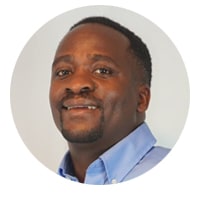
Jerome Bizimana is a Family Support Coordinator at World Relief Chicagoland. He was resettled in the U.S. in 2015 after leaving his home in the Congo. Jerome is now a dad of three children, and he loves to travel.
Change Disrupts, But Love Still Grows
It’s been a year of difficult change. But at World Relief, we believe you were made for change — not just to survive it, but to thrive through it.In today’s story, World Relief’s Vice President of U.S. Programs, Jennifer Foy, shares how amidst this year’s disruption, creativity, resilience and love still grew.
Recently, I was reading stories from our U.S. offices when I came across this one about two brothers who had been resettled by World Relief in Chicago seven years ago. They dreamed of opening up a tailor shop together, and that dream finally became a reality — in January, mere months ahead of the COVID-19 shutdown.
Faced with this new reality, the brothers wondered if their business would survive. But then, local residents started appearing at their shop – many of whom were immigrants themselves – in desperate search of masks.
Most stores were already sold out, and online shops were selling the masks at prices much higher than what these residents could afford. As such, the brothers knew what they had to do. They pivoted their business and began making masks, finding success and even fulfilling orders from other cities and states.
Change disrupts. But that disruption can bring new perspective.
This past March, when everything seemed to change overnight, I, too, wondered what the future would hold. After three difficult years of policy changes, office closures and a diminishing number of refugees being admitted into the United States, our U.S. teams were ready for something new.
But then, COVID-19 hit. Our offices began shutting their doors, staff moved to remote work and we began redesigning our services to meet new needs.
In the early weeks, the rapid change felt like a tsunami, crashing in and overtaking every part of our work and lives. This sudden change felt like another cruel blow to our teams working so hard to share Christ’s love, as well as to those we serve working hard to integrate into their communities.
Once I finally slowed down to catch my breath and take a step back, I realized God was inviting me into a new perspective. As I looked around at all the pain, sickness and unknown, I saw that beneath the chaos, resilience existed.
I began hearing stories just like the one above from across our U.S. network. Burmese refugees in North Carolina were making masks for their community, as were World Relief sewing program participants in Spokane and Seattle. A refugee restaurant owner in California began donating meals to frontline workers. Everywhere I looked creativity, strength, persistence, fierce courage and love grew amidst the chaos of our upturned world.
Among our offices, innovation flourished. Staff and community partners found new ways to serve in a COVID environment. In-person programs such as ESL classes, job training seminars and summer camps all moved online. Volunteer trainings also became virtual, opening up new pathways for people across the country to volunteer, whether they lived near a physical office or not.
When businesses began shutting down and our immigrant communities began experiencing lay-offs, our staff learned new skills and volunteers stepped up to help immigrant business owners navigate the Cares Act Relief and fill out unemployment paperwork.
Church partners also stepped in in new ways, allowing us to meet an immediate need for food. Across our U.S. office network, more than $1.5 million in food was donated and distributed, allowing us to serve over 42,000 families. Our North Texas office alone received $997,000 in food donations for immigrant families in need.
While I am looking forward to the end of COVID, I have seen new doors open and have been forever changed by the love shown in this season.
As we look to the year ahead, I see new strength in our communities — in immigrants who have learned to use technology to help them stay connected; staff who have renewed confidence that they can, with God’s help, move mountains; and a growing diversity within our communities of people from all walks of life stepping up to serve.
Change disrupts, but in that disruption we found hope and overwhelming amounts of love. We gained a new perspective and found an opportunity to rewrite the narrative of 2020 and make change for good.
Will you help us make change for good ?
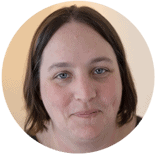
Jennifer Foy joined World Relief in 2007 as a volunteer in serving many refugee families before joining the staff in 2014. She served in the High Point North Carolina Triad office until April 2019 when she moved to World Relief’s headquarters in Baltimore to take on a national role. In her current role she oversees the program management and development across all U.S. network of offices. She brings 15 years of nonprofit leadership experience leading local nonprofits. Jennifer grew up in Oregon and received a B.A. Sociology from Western Oregon University and later a M.P.A. from Norwich University in Vermont. She lives in Maryland with her husband Will.
Are We Becoming a Nation of Closed Doors?
Last month, World Relief published a report in collaboration with Open Doors USA. This report explores how persecuted Christians and the U.S. refugee resettlement and asylum process have been impacted by recent changes in immigration policy.
The report found that since 2015, the number of persecuted Christians resettled in the U.S. has dropped by nearly 90%.
While the report focuses primarily on the effects policy changes in the U.S. have had on persecuted Christians, various other persecuted minority groups have also been largely shut out of resettlement in recent years.
As Christians, we believe that all people have the right to religious freedom and that religious minority of any sort — not just those who share our Christian faith — should be protected.
In an article recently published by The Christian Post, Matt Soerens, World Relief’s U.S. Director of Church Mobilization said, “Since the time of the pilgrims, America has been proud of its legacy of opening its doors to those experiencing religious persecution… American Christians must ask ourselves some tough questions. Scripture makes it clear that all believers are part of the body of Christ and that when one member suffers, the entire body suffers alongside it.”
These dramatic changes to U.S. refugee policy, which many American Christians seem to be either unaware of or indifferent to, “suggest that we’ve closed our ears — and our nation’s doors — to this suffering,” Matt writes.
Download the report to learn more.
Both Can Be True
Several months ago, a counselor said something that has stuck with me. She told me, “Both can be true.” I have held onto these words in the past few months as a tangible way to remind myself of the tension and the reality in our day-to-day world.
For the past couple years, my husband and I have been focused on building a business in his home country of Guatemala, seeking to provide employment for local residents. But, due to COVID-19, all of our work was cancelled and capital quickly dried up. As a result, we’ve had to let go of the business. The grief has been so real. And yet, I struggled to know how to feel it in the midst of a global pandemic and economic recession when our family is healthy and employed. But I can be grateful for what I have and disappointed about what I’ve lost. Both can be true.
In June, Rayshard Brooks was killed by police at my neighborhood Wendy’s. The restaurant was later burned down. On the 4th of July, I shared how I can be patriotic and want our country to address her glaring need for real change. Both can be true.
Next week, my kids “start” school. This weekend, we’re building a workspace in our living room. Moms and dads and teachers all over the country are battling a million emotions about this topic. I am allowing myself to rest in the nuanced tension. I can be concerned about my state’s rising COVID numbers and grieve that my kids aren’t going back to school. I can care about the physical health of my community and also about its mental health and economic well-being. Both can be true.
Last week, the Department of Homeland Security issued a new memo impacting “Dreamers,” immigrants brought to the U.S. as children. On one hand, I’m relieved that the administration has (at least for now) decided not to again attempt to fully rescind DACA, which news reports had suggested was coming. On the other hand, the memo means new hardships for DACA recipients, including filing renewals and paying hefty fees every year, rather than every two years, and barring new applicants to DACA, which we’d presumed based on the June Supreme Court decision would re-open. It’s a relief and it’s frustrating. Both can be true.
Too often, we are pressured to reduce life to binary choices with simple answers. Are you for or against? Left or right? Which side are you on?
But we do not have to neglect the nuance. I honestly think it’s inauthentic to pretend we have no doubts, no questions, no wavering or wondering. It’s also dismissive of those around us to assume that because they share one point of view that it’s the sole perspective they have on the issue.
I recently had a conversation with someone who had an influence on my childhood faith. When she heard I’d written a book, she asked what it was about. I tried not to answer. But eventually, I told her it was about immigration and faith. She immediately asked if I was “all about open borders.” I may have sighed.
I can care about reasonable border security and advocate for making a safe place to welcome asylum seekers. I can believe in the rule of law and want to see Dreamers have a permanent solution. I can support people going through the immigration process “the right way,” while also acknowledging that we’ve made “the right way” very narrow and there’s room to make it simpler and more welcoming. These things can all be true.
We benefit from holding the right amount of tension. It’s good that we have more than one political party. It’s helpful that people have different points of view than our own. These push and pull factors in society help us foresee challenges we otherwise wouldn’t, think creatively, and problem-solve together. I believe we have an opportunity to be an example of holding space for the both/and. Sometimes two truths that others may want to be contradictory hold hands and help us to walk forward with strength.
Both can be true.
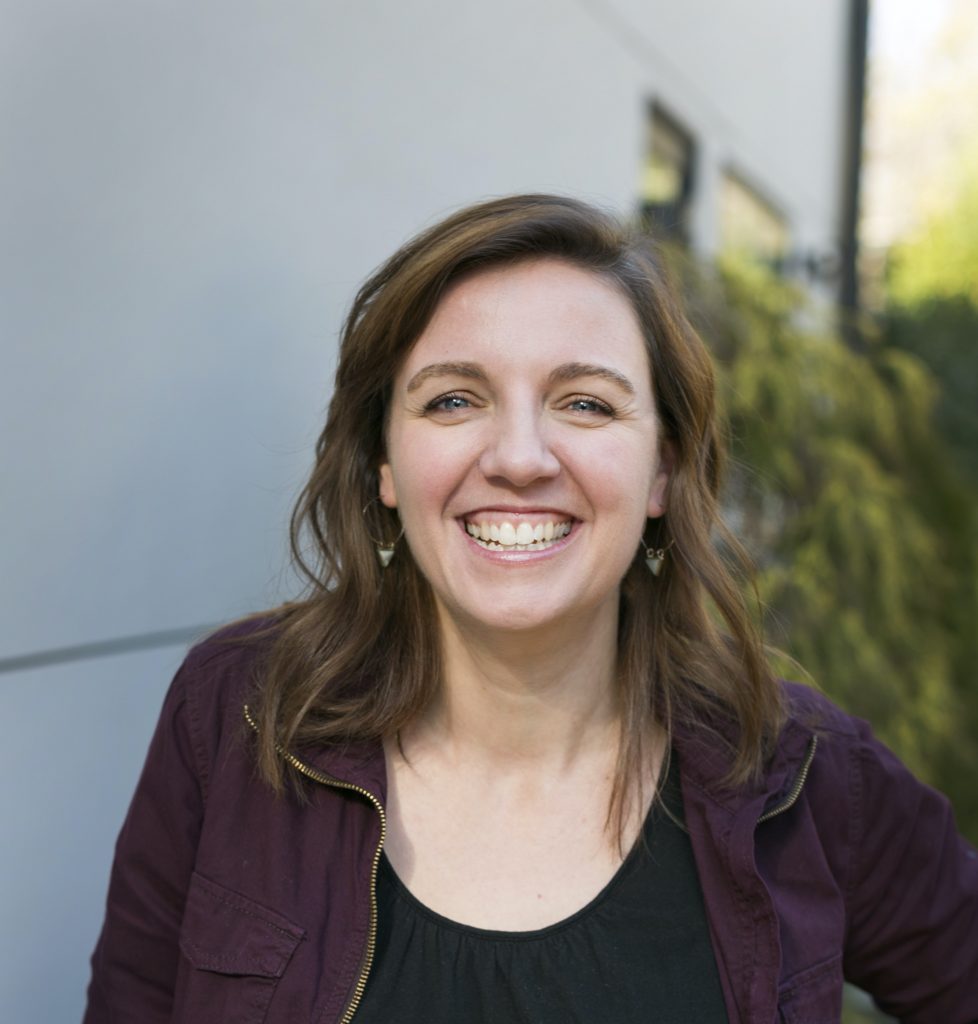
Sarah Quezada is a writer, speaker, and advocate. She has a master’s in sociology and wrote Love Undocumented: Risking Trust in a Fearful World. She also oversees the fast-growing online community Women of Welcome, a project of World Relief and the National Immigration Forum. She and her husband Billy live in Atlanta, Georgia and are raising two bicultural and trilingual-ish kids. Find Sarah on Instagram at @sarahquezada or her website sarahquezada.com.
COVID and the Issues: U.S. Programs
World Relief currently operates local offices in 18 cities across the United States. Our teams are committed to helping new immigrants thrive by providing vital services and building communities of love and welcome. In addition to case management, our U.S. offices offer English language classes, job training and placement programs, legal services, youth mentoring, mental health services and more.
Prior to the COVID-19 pandemic, all U.S. programming took place in person. But in March, everything changed. As the country shut down, so did our physical office locations, and our teams were forced to find a way to bring their very interactive programming to a virtual space.
Today, in the fourth week of our COVID and the Issues series, we’re talking with Jennifer Foy, Vice President of U.S. Programs at World Relief. Jenn discusses the new needs that immigrants are facing in the wake of the pandemic and how our U.S. teams are adapting to meet those needs. In Chicagoland alone, the staff received 500 phone calls in less than a week from immigrants who had been laid off and needed help navigating unemployment and finding new jobs.
It’s been overwhelming and unprecedented. But, as Jenn discusses, the resilience and creativity that is being birthed out of hardship gives us something to hope for.
Come back next week to learn more about how COVID-19 is affecting food security and nutrition across the globe. To join us in addressing these issues visit worldrelief.org/covid-19.

Rachel Clair serves as a Content Writer at World Relief. With a background in creative writing and children’s ministry, she is passionate about helping people of all ages think creatively and love God with their hearts, souls and minds.
COVID and the Issues
It’s been five months since World Relief first began responding to the COVID-19 pandemic. Our U.S. and International offices closed their physical office locations in March, and our teams began innovating new ways to continue serving the most vulnerable in the U.S. and across the globe.
In the coming weeks, we will be sitting down with leaders and program experts from across World Relief’s program areas to bring you an in-depth look at how our U.S. and international teams have adapted to serving their communities throughout this global pandemic. You’ll hear more on the issues of economic development, child development, health, gender-based violence, immigration, food security and nutrition.
To kick off this new series, we wanted to give you a bird’s eye view of the work that’s been happening over the last few months and why your continued partnership in response to the coronavirus is so vital.
The vulnerable populations we serve across the globe are the most at risk of increased hunger, poverty and violence as a result of the social and economic effects of the COVID-19 pandemic. In the coming weeks, the number of people struggling with life-threatening hunger could double, and 500 million more people could be pushed into extreme poverty. Continuing our international development activities is essential as this pandemic evolves.
Hear more from Myal Greene, SVP of International Programs at World Relief.
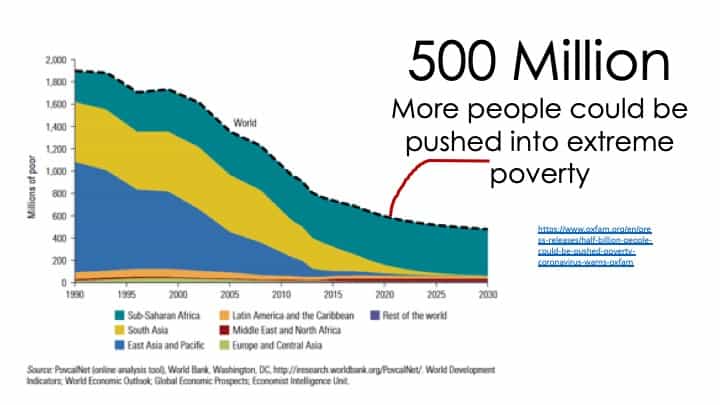
Just like in the U.S., it is now suggested that people wear cloth masks in many of the countries where we work. Our international teams and church partners are working hard to ensure the most vulnerable have access to face masks. Additionally, our teams are adapting their programs and utilizing their vast networks to make sure people have access to vital programs and services.
Hear more from Joanna Kretzer Chun, Director of Program Resources Team.
Listen as Joanna talks about how our international teams are utilizing their networks of church partners to reach thousands of people with important COVID-19 health information.
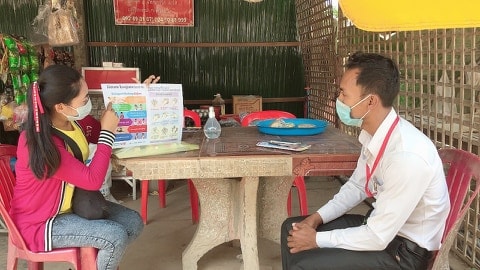
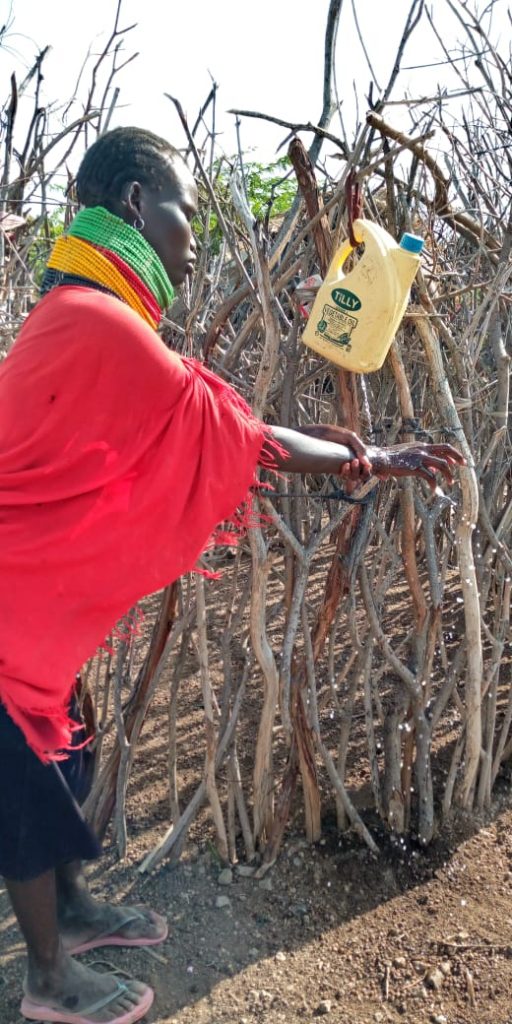
Disseminating accurate COVID-19 awareness and prevention messaging has been a key part of World Relief’s international response. Many of our teams have utilized text messaging platforms to reach hundreds of church leaders with clear and accurate information. In order to reach those living in more remote areas, our teams have had to get creative, using billboards, loudspeakers and radio stations to spread messages.
Hear more from Rhona Murungi, Senior Program Officer and International Operations Director.
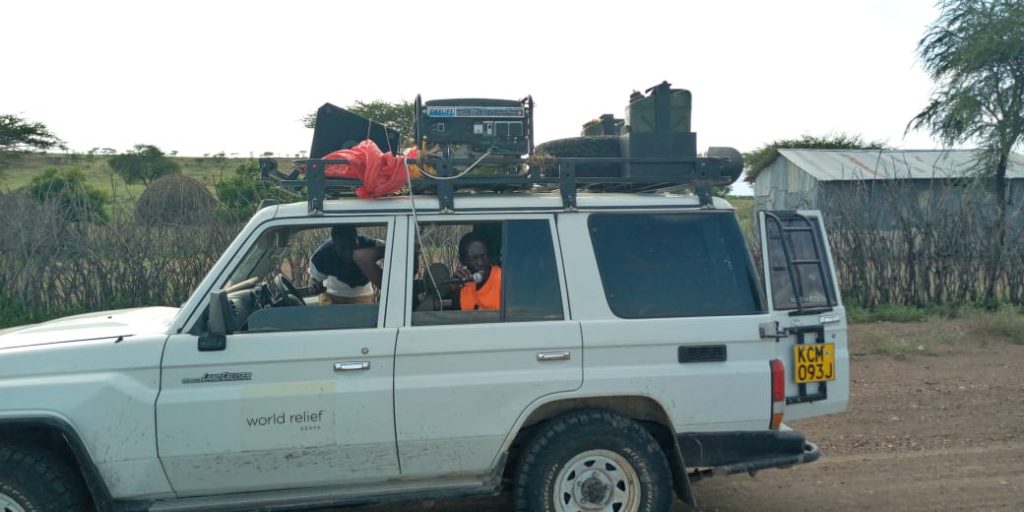
Listen as Rhona talks about the vital role that local churches are playing in reducing the spread of COVID-19.
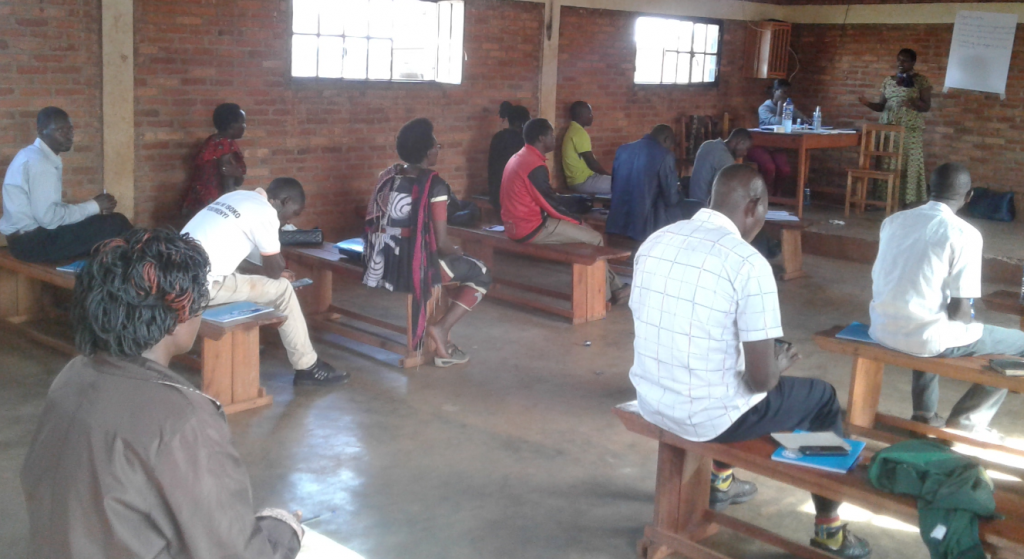
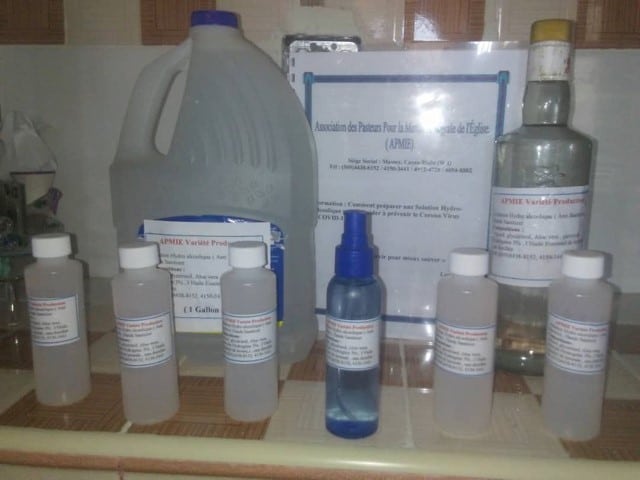
The negative effects of COVID-19 will be wide-reaching. The World Food Program has forecasted a famine of biblical proportions. The number of people facing life-threatening hunger could double in the coming months. Ensuring that affected communities have access to food has been a critical part of our international response.
Hear more from Charles Franzen, Humanitarian and Disaster Response Director.
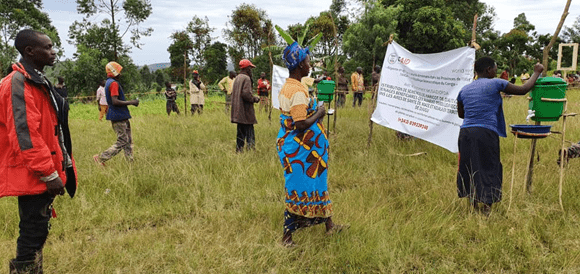
The effects of COVID-19 continue to impact our U.S. teams as well. Many of the immigrants we serve work in industries that have been hardest hit by layoffs and the economic downturn, and our teams are working hard to provide additional services to them during this time of need.
Likewise, with social distancing measures still in place in many states, our teams have continued to innovate by offering many of our programs online. Recently, two of our U.S. office directors wrote about the changes their teams made in order to keep serving immigrants in the U.S.
Read more from Tami McLaughlin, Director of World Relief Fox Valley, and Laura Fontaine, Director of World Relief Quad Cities.
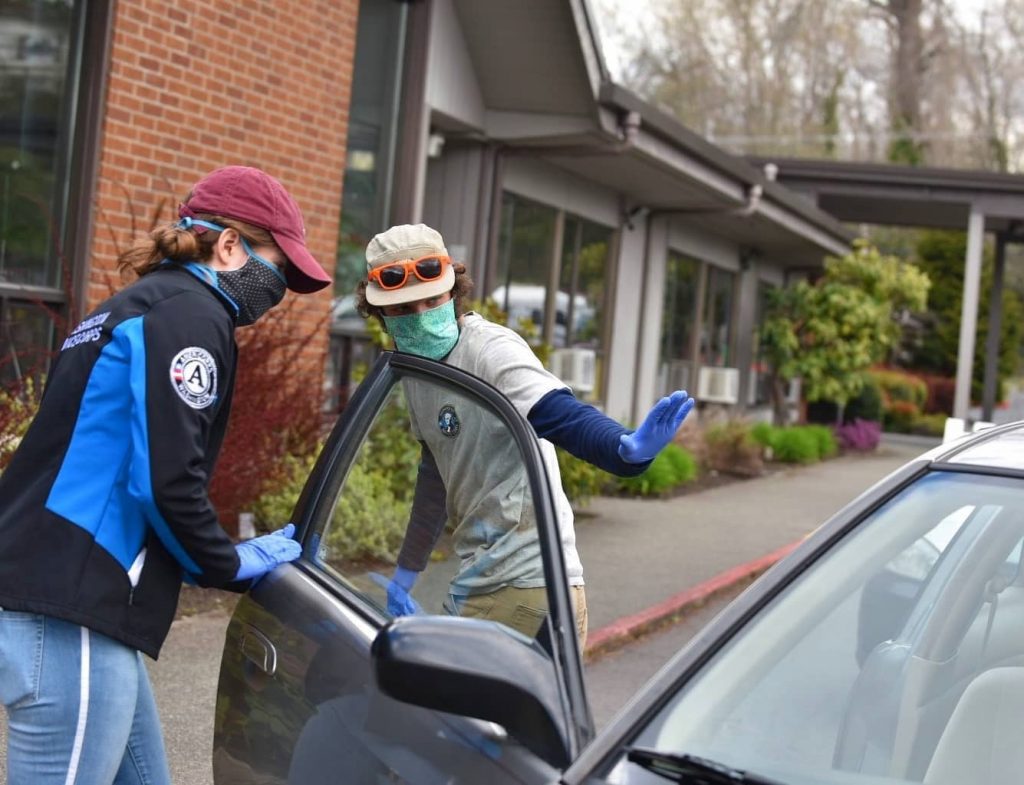

Rachel Clair serves as a Content Writer at World Relief. With a background in creative writing and children’s ministry, she is passionate about helping people of all ages think creatively and love God with their hearts, souls and minds.
I am a Dreamer
I vividly remember June 15, 2012. It was my little sister’s graduation from the University of California, Irvine, and we were getting ready for her big day. The TV was on in the background, playing either Telemundo or Univision. I can’t quite remember which. When the president came on the TV, we all stopped what we were doing to listen as he announced the DACA executive order. Incredulous, yet overjoyed, we all hugged each other!
I came to the U.S. with my family when I was 14 years old. My parents and younger siblings had received their green cards earlier that year through a family petition that was filed in 2001. I aged out of the process and remained undocumented. Getting the news that I could now receive a work permit and protection from deportation filled me with hope. I felt less abandoned. I was given the opportunity to occupy the spaces that were open to my family members as legal residents.
For weeks, I anxiously waited for the DACA forms to become available, checking uscis.gov every chance I got. Once the forms were finally available, I filed my own DACA application. I googled DREAMer blogs, which helped me put together 100+ pages of evidence that demonstrated my continuous presence in the US from 2007 to 2012. Unlike younger applicants, I couldn’t just submit my school transcripts. I graduated from college in 2007 and had worked multiple jobs between then and DACA day 2012. Those jobs ranged from tutoring, babysitting, helping the family business and volunteering at local schools. I had to provide documentation of all these things and more with my application. I often wonder what the immigration officer’s face looked like when he saw my very organized, yet very messy life in front of him. In the end, I received my first DACA work permit on September 28, 2012.
Months later, a friend asked me to join her as a volunteer at World Relief where she was helping with DACA applications. That is how I first started down the path to helping people like me find ways to get legal status. In high school, I dreamt of being an immigration attorney. Back then It felt like an impossible dream — one that I don’t think I ever even said out loud. I wanted to be someone who could provide accessible information to others in my community who were seeking legal status.
I had been exposed to too many injustices not to do something about it. Too many friends and people from church had fallen victim to scams —so-called notarios — who took advantage of people’s desperation to have legal status, only to lead them into significant financial loss and, at times, facing deportation and family separation.
At World Relief, I found a path to my dream. After going through an extensive training process to become a Department of Justice accredited representative, I was allowed to practice immigration law (with limitations) as a non-attorney. For the past seven years, I’ve had the privilege to do what I always wanted. To top it off, I get to work with an amazing group of people that have become my family.
But then, 2017 happened. That year was the worst year of my life as a reality that had been dormant awoke in me. DACA had given me a false sense of belonging and my mom’s death slapped me back into reality: I am undocumented in this country.
My mom passed away unexpectedly while she was visiting Peru. While everyone else in my family was able to travel to Peru to see her one last time and to mourn with our family, I stayed behind.
Thankfully, I am blessed with amazing friends who love me and knew just how to see me through this terrible situation, but the sting remains. I had to stay behind — an ever-present reminder of my undocumented status. And while my mother’s passing struck me to my core, 2017 was also the year a new presidential administration was appointed in the U.S. This new administration sought to terminate DACA. Over the next three years, the administration would introduce many other immigration policy changes, making practicing immigration law even more difficult than it was before.
Immigration in general is a mess. It seems like every other day there are new policies, new forms, new fee hikes, less options for those with low income, new barriers making it impossible for people to get their papeles. In the five months since COVID-19 hit the U.S. alone, at least 47 immigration policy changes have been introduced, and I feel it all.
All these changes are happening to me, they are attacks to people like me. We are working, supporting our families, doing our best to be considered “of good moral character,” hoping for a pathway to get permanent status. We, undocumented people, we already belong. We just don’t have the plastic card that proves it.
Last week, the U.S. Supreme Court blocked the administration’s attempt to terminate DACA, a temporary victory in this long and arduous battle. While I breathed a sigh of relief, the Court said the administration could still end the program if it were to follow the proper procedures. As anxious as that makes me — for myself, for my friends, for my clients — home is here. I will file as many applications as I can until the end. I will do my best to help as many people as I can to ensure they continue to have protection from deportation and a right to legally work.
I know what life without DACA would be. Hard doesn’t quite describe it, and I don’t want it.
But I have hope. My siblings are US citizens now. I helped with their processes myself! Throughout my years at World Relief, I have helped so many become citizens, and I wish I had kept count! When November rolls around, I hope they all vote. And I hope they remember people like me when they do.
Ana Jara is a Department of Justice (DOJ) Accredited Representative at World Relief, where she has worked for six years. She graduated from UCLA and has worked in the nonprofit sector serving the Latino community ever since.











